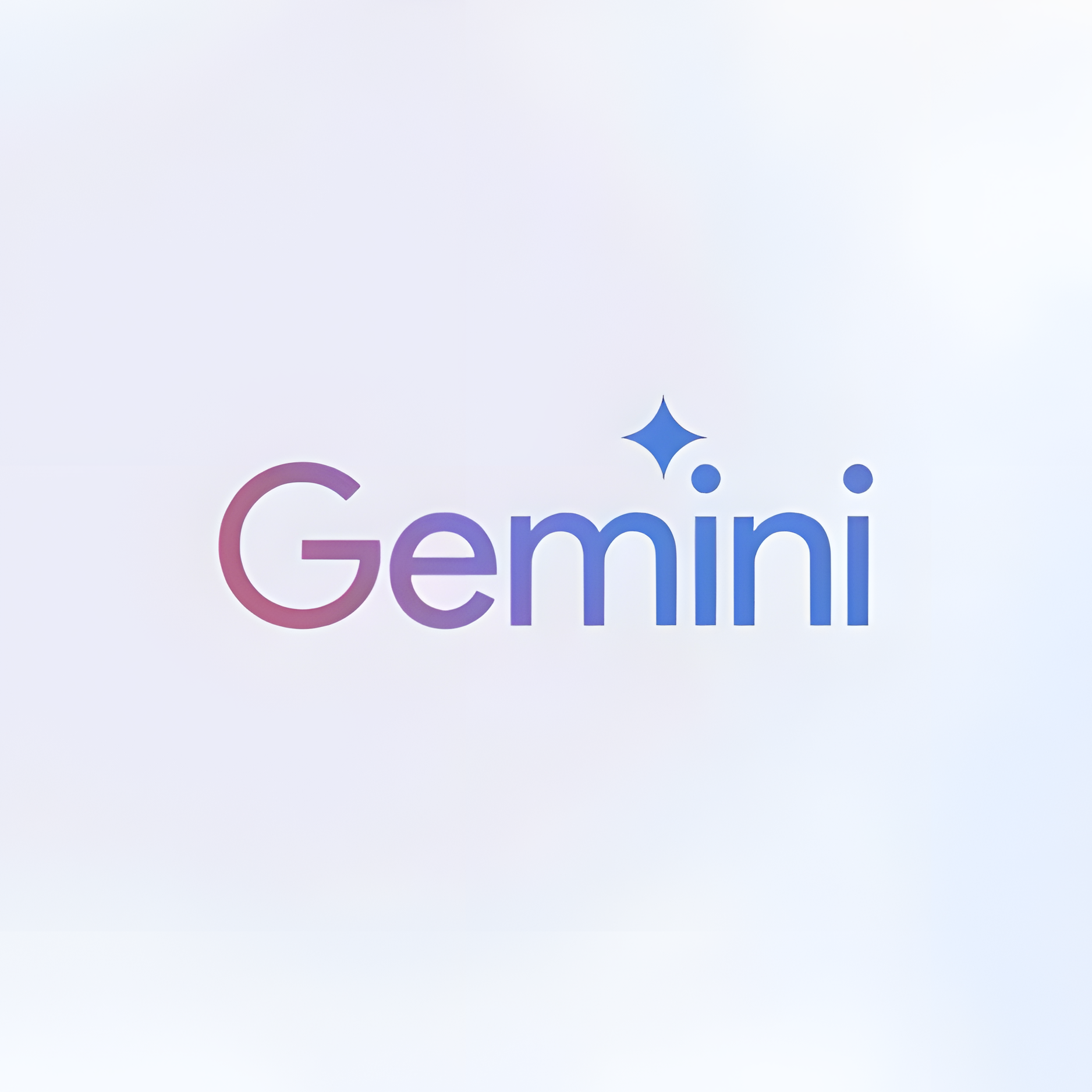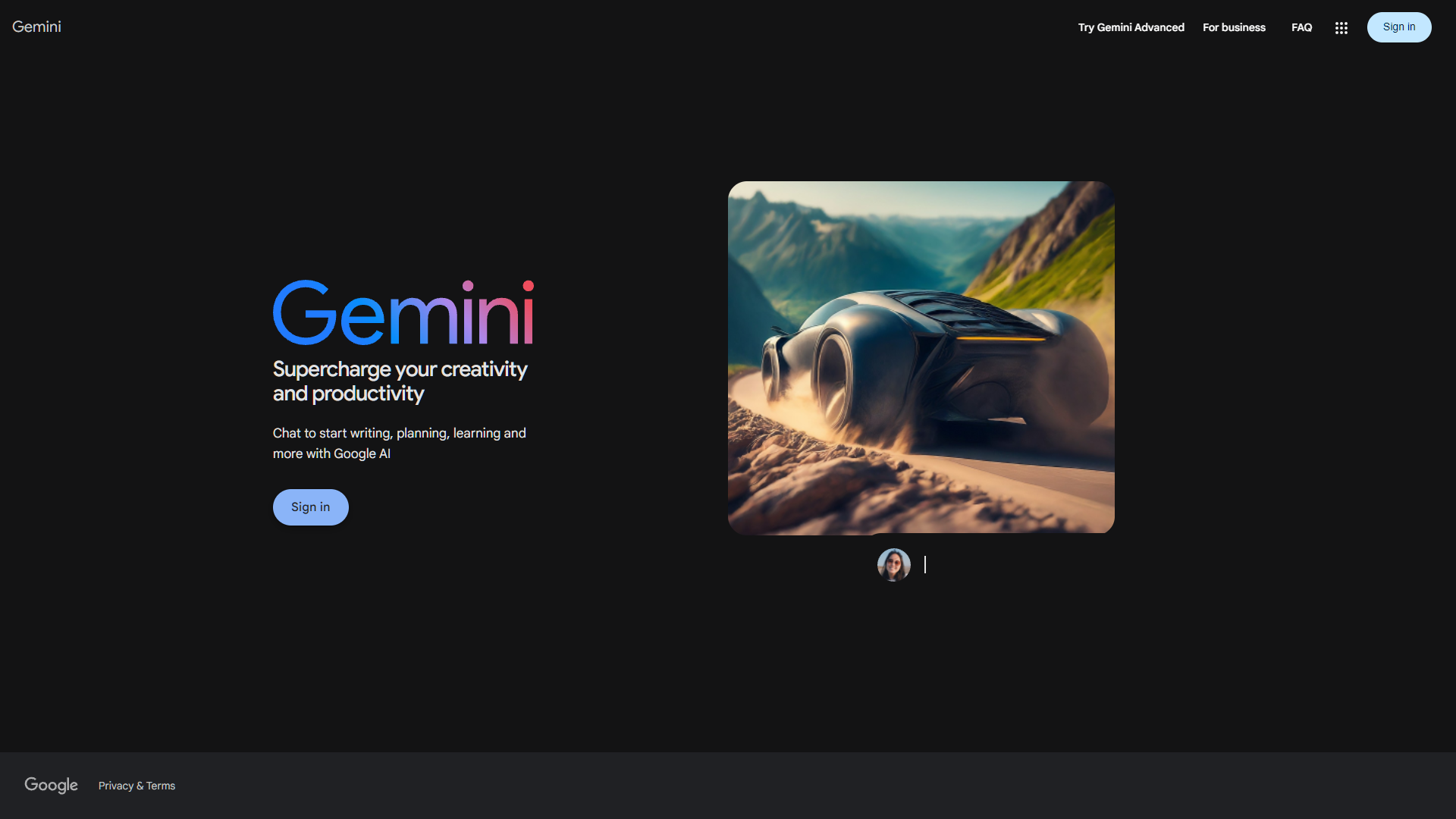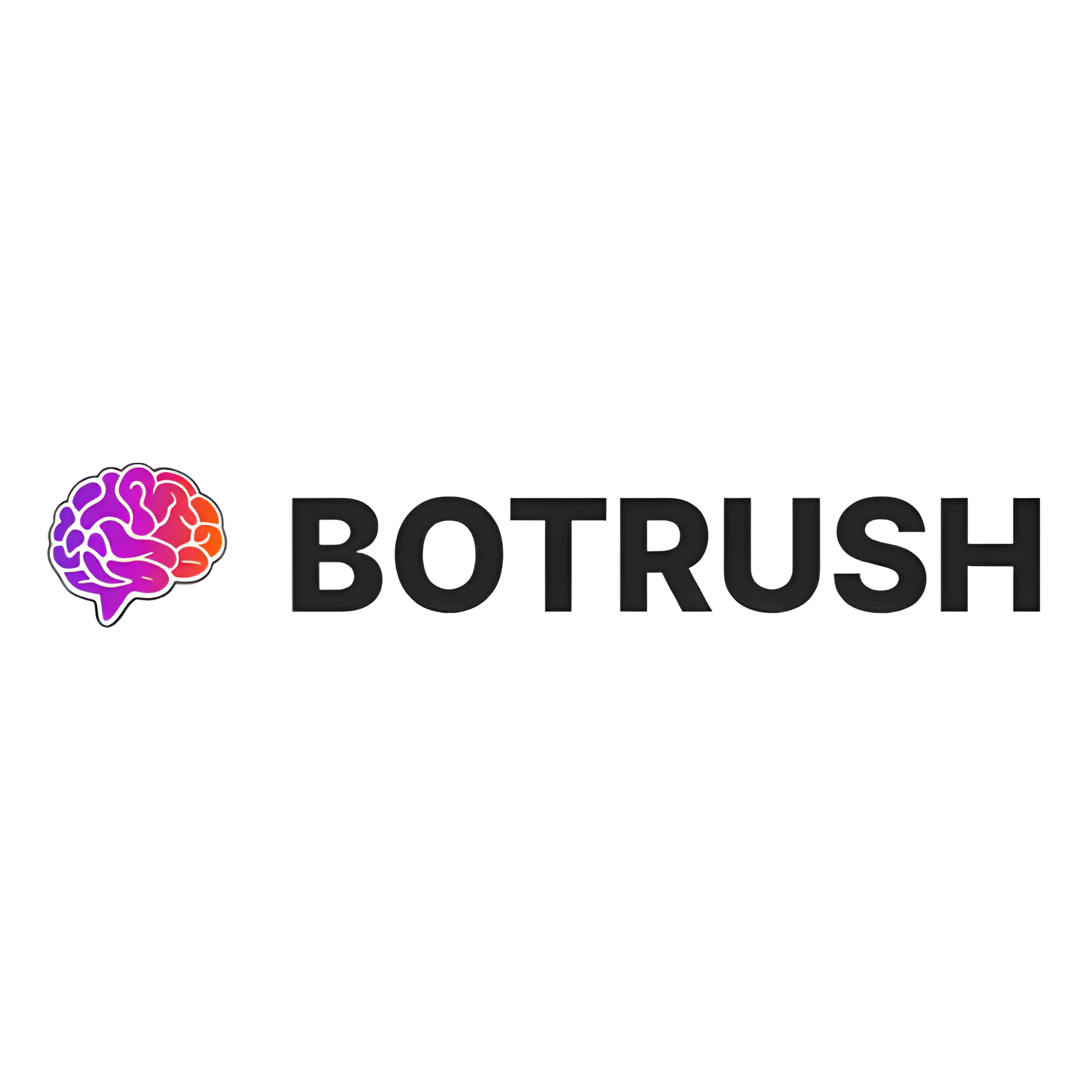Overview
Gemini is an innovative tool developed by Google, designed to enhance the way users interact with digital content across various platforms. This tool aims to streamline the process of managing and sharing information by integrating advanced search capabilities with user-friendly interface elements. Gemini allows users to effortlessly navigate through vast amounts of data, making it easier to find, organize, and utilize content effectively.
One of the standout features of Gemini is its ability to adapt to individual user preferences and learning styles. This personalization makes it not only a powerful tool for individual users but also an invaluable asset for teams and organizations looking to optimize their workflow. Whether you're a student researching for a thesis, a professional compiling industry reports, or just someone who loves to stay organized, Gemini provides a tailored experience that improves productivity and information management.
Moreover, Gemini supports a variety of file types and sources, ensuring compatibility and flexibility. Its integration with other Google services enhances its functionality, allowing for a seamless digital experience. With Gemini, Google continues to push the boundaries of what digital tools can achieve, making it an essential tool for anyone looking to enhance their digital interaction and productivity.
Key features
- Advanced machine learning: Empowers users to develop and deploy sophisticated machine learning models for a variety of applications.
- Natural language processing: Offers powerful tools for analyzing and understanding human language, enhancing text-based data analysis.
- Image recognition: Supports highly accurate and efficient analysis of images, enabling tasks like object detection and image classification.
- Predictive analytics: Facilitates the creation of models that can forecast trends, behaviors, and outcomes, aiding in strategic decision-making.
- Integration with Google Cloud: Ensures seamless connectivity with other Google services and tools, providing a cohesive and powerful AI ecosystem.
 Pros
Pros
- High efficiency: Streamlines the machine learning process, significantly reducing development time and effort.
- Robust support: Backed by Google's extensive resources, documentation, and community support, ensuring users have access to necessary help and information.
- Versatile applications: Suitable for a wide range of AI tasks across different industries, from healthcare to finance and beyond.
- Scalable solutions: Designed to handle projects of varying sizes, from small experiments to large-scale deployments.
 Cons
Cons
- Subscription costs: Access to advanced features and full capabilities may require a paid subscription, which could be a barrier for some users.
- Learning curve: Mastering the platform's advanced features may require significant time and training, especially for beginners.
- Privacy concerns: As with any cloud-based AI service, there may be concerns regarding data privacy and security.

















